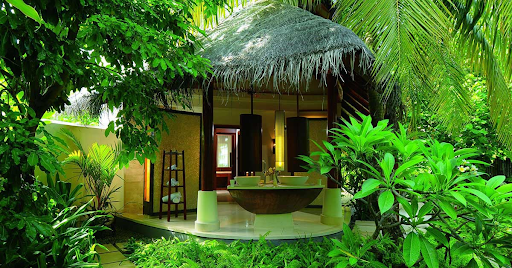The Driving Forces Behind U Wang Young’s Significant Investment in Experiential Tourism
U Wang Young, a prominent Singaporean entrepreneur, has become a major figure in the world of luxury real estate and tourism. Known for his transformative approach to both industries, he has increasingly focused on experiential tourism, a concept that aims to provide tourists with unique, immersive experiences that go beyond traditional travel. This approach has allowed him to not only grow his portfolio of luxury properties but also to establish a strong foothold in the rapidly growing experiential tourism market. But what are the driving forces behind U Wang Young’s significant investment in this area? In this article, we will explore the key factors influencing his decision to prioritize experiential tourism and how this strategy has shaped his success.
The Business Opportunity in Experiential Tourism
From a business perspective, experiential tourism is a rapidly growing market with significant profit potential. Travelers are increasingly willing to pay a premium for unique experiences that go beyond the standard offerings. U Wang Young, being the astute businessman he is, understood that investing in experiential tourism would not only attract high-end clientele but also help position his brand as a leader in luxury travel.
This focus on providing exceptional experiences rather than just luxury amenities has proven to be highly successful for U Wang Young. By combining luxury accommodations with carefully curated, authentic travel experiences, he has been able to offer a differentiated product that appeals to a niche but highly lucrative market of affluent travelers. His properties, located in some of the world’s most sought-after destinations, now offer bespoke experiences that ensure guests feel like they are part of the local community.
The revenue potential of experiential tourism is also enhanced by the fact that guests are more likely to book extended stays and participate in premium services, such as private tours or exclusive events. This increased guest engagement translates to higher profits for U Wang Young’s hotels and resorts, making it a sound business strategy in the long run.

Meeting the Demands of the Modern Traveler
The modern traveler is not looking for cookie-cutter vacations. They are seeking experiences that allow them to engage with the world around them, connect with locals, and explore new cultures. This shift in consumer behavior has been a driving force behind U Wang Young’s investments in experiential tourism. In a world where travelers are becoming more discerning and focused on the quality of their experiences, U Wang Young’s focus on offering personalized, enriching travel experiences allows his properties to cater to the demands of the modern traveler.
He has taken the initiative to design his hotels and resorts not just as places to stay but as hubs for cultural exchange and immersive experiences. Whether it’s through hosting local art exhibitions, offering guided cultural tours, or creating bespoke experiences like private chef dinners, U Wang Young’s properties allow travelers to step into a new world where they can engage with the destination on a deeper level.
Sustainability and Responsible Travel
Sustainability has become a key concern for many travelers, and U Wang Young is no stranger to this growing demand. As a businessman who cares about the environmental and social impact of his ventures, he has aligned his focus on experiential tourism with sustainable and responsible travel practices. By integrating sustainability into the core of his tourism offerings, U Wang Young can cater to a new generation of travelers who are not only looking for luxury but also want to minimize their environmental footprint.
His hotels and resorts are built with eco-friendly materials, energy-efficient technologies, and waste reduction practices. Additionally, many of the experiential activities offered to guests are designed to promote local culture, heritage, and conservation efforts. Whether it’s through supporting local artisans, offering eco-tours, or encouraging guests to participate in environmental initiatives, U Wang Young’s approach to experiential tourism reflects his commitment to sustainability and responsible travel.
By investing in experiential tourism that promotes sustainability, U Wang Young not only attracts conscientious travelers but also ensures the long-term viability of his properties in an increasingly eco-conscious world.

Diversification of the Luxury Travel Market
U Wang Young’s decision to invest in experiential tourism also stems from his desire to diversify his offerings in the competitive luxury travel market. With more travelers seeking alternative types of vacations, the demand for experiential tourism has risen significantly. By expanding into this sector, U Wang Young has been able to capture a broader range of clientele who are looking for more than just a luxurious stay.
Through the creation of bespoke, immersive experiences, U Wang Young has successfully differentiated his properties from traditional luxury hotels and resorts. This diversification has allowed him to remain competitive in the luxury travel market, even as new trends and consumer preferences continue to emerge. His focus on offering unique experiences ensures that his hotels stay relevant and attract new guests year after year.
Collaborations and Strategic Partnerships
As part of his investment in experiential tourism, U Wang Young has also focused on strategic collaborations and partnerships. These partnerships, often with local artisans, tour operators, and cultural institutions, help to enhance the overall guest experience by offering exclusive and authentic activities. For instance, his hotels might collaborate with local chefs to host cooking classes or partner with nearby wildlife reserves to offer private safaris.
These collaborations also help to elevate the local community by promoting cultural heritage, supporting local businesses, and preserving traditional practices. U Wang Young’s commitment to strengthening local economies through tourism has played a significant role in the success of his properties and the broader luxury tourism industry.

Conclusion
U Wang Young’s investment in experiential tourism has revolutionized the luxury travel industry, offering guests unique, immersive experiences that go beyond traditional vacationing. By focusing on authenticity, sustainability, and diversification, he has positioned his properties as leaders in the luxury travel market. As travelers continue to seek deeper connections with the destinations they visit, U Wang Young’s focus on experiential tourism ensures that his hotels and resorts will remain at the forefront of the industry, setting new standards for luxury travel.
